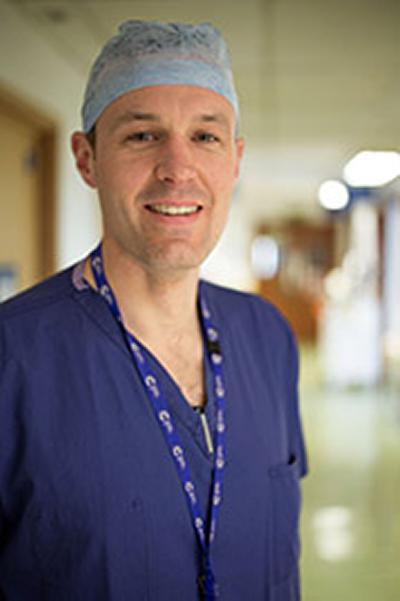More oesophageal cancer patients benefit from pre-op chemo than previously thought

More oesophageal cancer patients than previously thought are benefiting from having chemotherapy before an operation to remove their tumour, according to new research* published in the World Journal of Gastroenterology.
And, for these patients, this could mean an increased chance of survival or lengthening the time before their cancer returns.
Researchers from the University of Southampton looked at the records of over 200 patients** with a type of oesophageal cancer known as adenocarcinoma treated at Southampton General Hospital.
Previous research has shown that giving chemotherapy before surgery can benefit some patients by causing their tumours to shrink.
But in addition to these patients, the researchers found that an extra group also benefitted from the chemotherapy. Even though it had not shrunk the original tumour, it did reduce the spread of the disease in the lymph nodes. And this had a knock on effect of better survival and longer time between relapses.
The clinicians also believe that another course of chemotherapy after surgery could benefit these patients even more.
In the study, over a quarter of patients (26 per cent; 36 patients) who had chemotherapy before surgery had tumours that responded significantly to the treatment compared to 74 per cent (100 patients) whose tumours did not respond.
But 30 additional patients also benefitted from the chemotherapy as they had a reduction in the number of lymph nodes with cancer in them. In this group the average time to relapse of the cancer was increased from just over one year to more than five and a half years.
The study was funded by Cancer Research UK and the Medical Research Council (MRC).
Mr Tim Underwood, an MRC Clinician Scientist, oesophageal surgeon researcher at The University of Southampton and one of the study authors, said: “We still don’t know why some patients respond to chemotherapy, and others don’t. But this study suggests that more patients than previously thought do benefit from chemotherapy before surgery, which means that having more treatment after their operation might also work for them too.”
“We’re at the start of the journey to find markers that will help us tailor our treatments for patients with oesophageal cancer. There’s so much more we need to find out about this form of cancer – which is why I’m working on one of the most important research projects to unravel the genetic code of oesophageal cancer. British scientists, funded by Cancer Research UK’s Catalyst Club, are working on this as part of the International Cancer Genome Consortium (ICGC)***.”
Oesophageal cancer is the ninth most common cancer in the UK with around 8,500 new cases diagnosed in the UK every year****. It is also the sixth most common cause of cancer death. It is more common in people who smoke, drink alcohol, are overweight and eat little fresh fruit and vegetables.
Kate Law, Cancer Research UK’s director of clinical trials, said: “This study is another piece in the jigsaw in helping us to understand how to tailor treatment to the type of cancer that oesophageal patients have.
“The number of cases of oesophageal cancer are on the increase, but survival still remains poor. This is why Cancer Research UK is making oesophageal cancer a research priority in order to make headway in the fight against this devastating disease.”
Notes for editors
*Noble, F et al. Refining pathological evaluation of neoadjuvant therapy for adenocarcinoma of the esophagus (2013) World Journal of Gastroenterology. DOI:10.3748/wjg.v19.i47.0000
**A total of 218 patients were included in the study. 136 received chemotherapy before surgery; 82 did not receive chemotherapy before surgery.
*** Watch the final episode of the Cancer Marathon film at http://youtu.be/aru-Drl2Oic and support Tim with his fundraising efforts at http://www.justgiving.com/TheCancerMarathon.
**** http://www.cancerresearchuk.org/cancer-info/cancerstats/types/oesophagus/